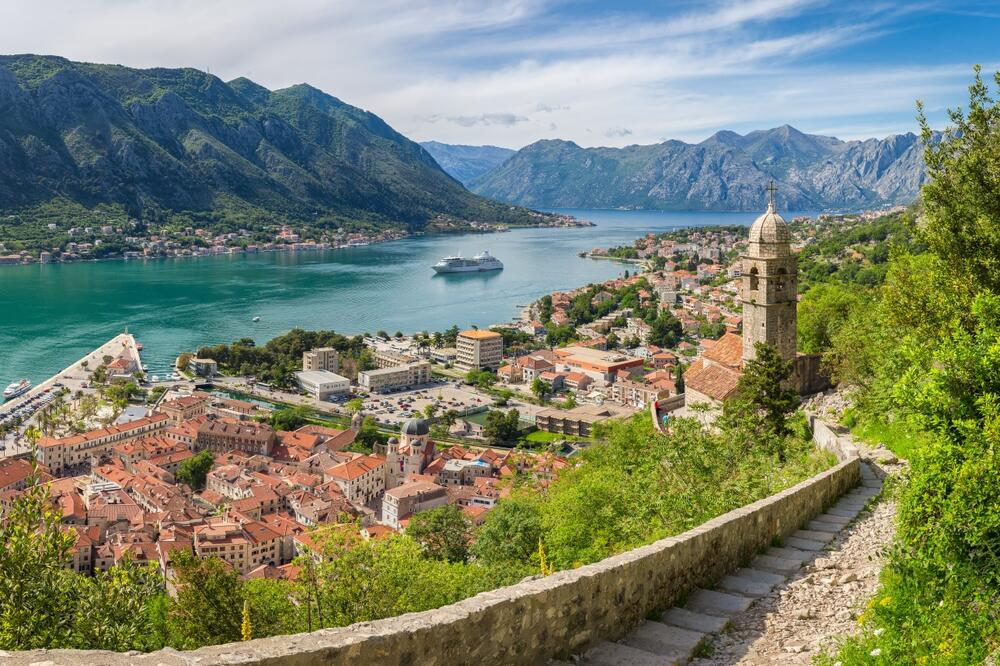What are the best neighborhoods to live in within Kotor, Montenegro?
The best neighborhoods to live in within Kotor include the Old Town, Dobrota, Muo, and Prčanj. Each neighborhood offers its own unique charm and amenities, from historic architecture in the Old Town to waterfront living in Dobrota and scenic views in Prčanj.
Understanding Montenegro: An Overview
Montenegro, a small country in Western Europe, is not yet a member of the European Union but uses the euro as its currency. With its captivating coastlines, stunning national parks, and rich cultural heritage, Montenegro has become an increasingly popular destination for expats looking for a beautiful place to call home. Kotor, located along the Montenegrin coast, is just one of the many gems this country has to offer.
Kotor's Highlights
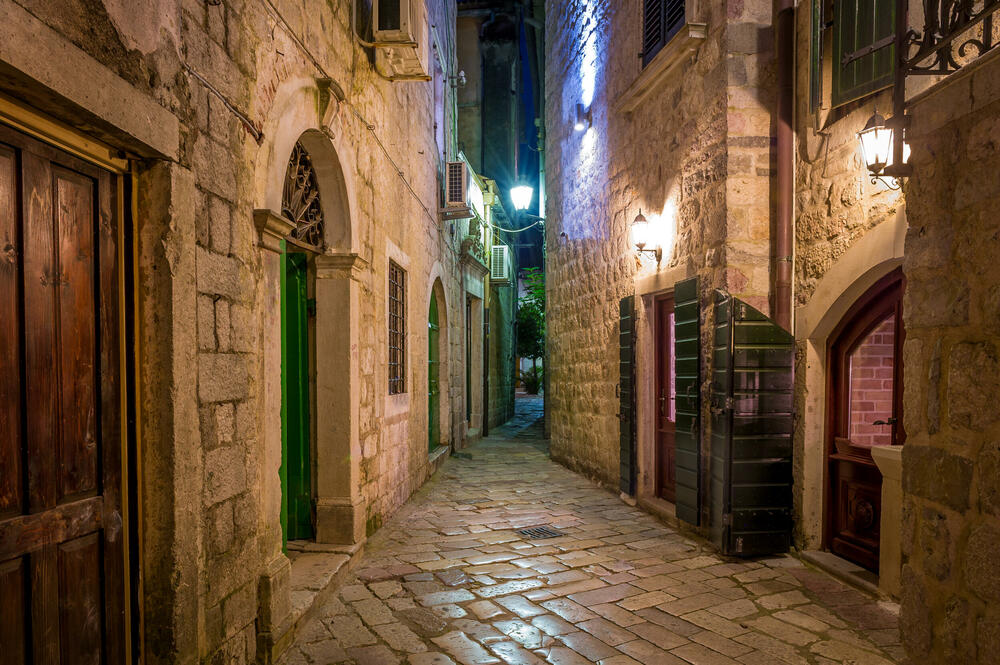
Kotor, with its captivating beauty, never fails to impress expats and tourists alike. The town's old town, a UNESCO World Heritage site, is a labyrinth of narrow streets, ancient walls, and historic buildings. The medieval charm of this old town is truly enchanting, drawing visitors from all over the world.
Kotor's proximity to the Adriatic coast is another major highlight of living in this town. Crystal-clear waters, and breathtaking scenery make it a paradise for beach lovers and water enthusiasts. From relaxing on the beach to sailing, swimming, and kayaking, there are endless opportunities to enjoy the Adriatic Sea.
The Beauty of Montenegrin Cities
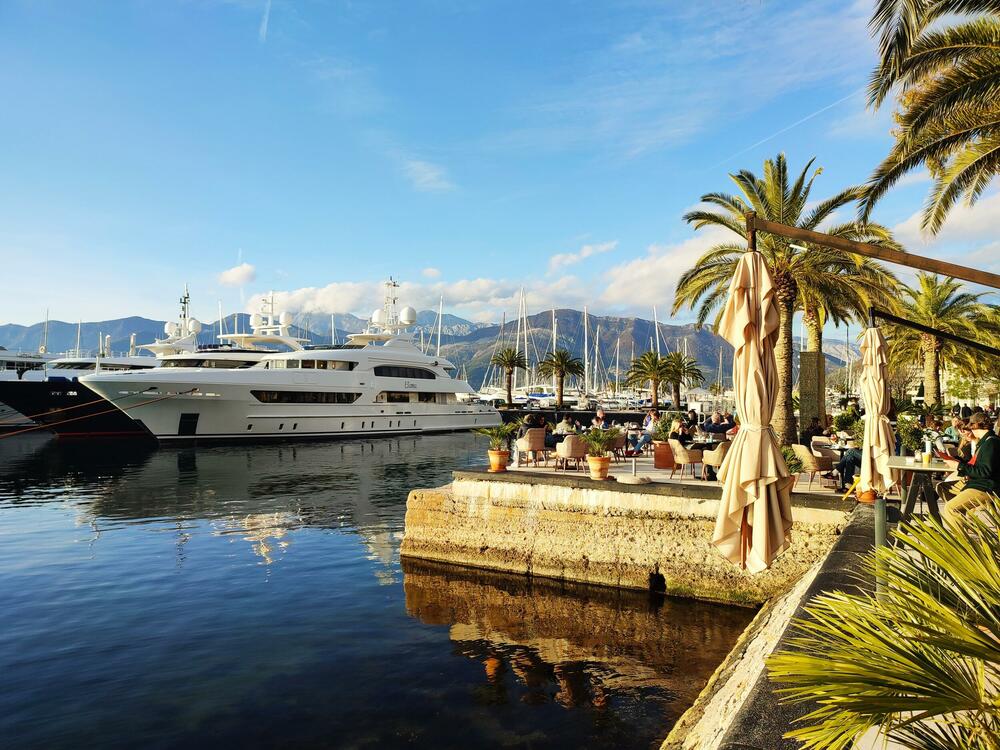
Montenegro, home to Kotor, is blessed with many beautiful cities and towns worth exploring. Here are some of the highlights:
- Herceg Novi: Located at the entrance of the Bay of Kotor, Herceg Novi is known for its beautiful promenades, historic forts, and vibrant cultural scene.
- Sveti Stefan: This tiny island-turned-luxury-resort offers stunning views of the Adriatic Sea and is a popular tourist destination.
- Budva: With its lively nightlife, sandy beaches, and charming old town, Budva attracts both locals and tourists looking for a good time.
- Tivat: Home to Porto Montenegro, Tivat is a modern coastal town that offers a mix of luxury living, beautiful beaches, and cultural attractions.
- Podgorica: As the capital of Montenegro, Podgorica provides expats with access to international schools, business opportunities, and a cosmopolitan lifestyle.
These cities, each with its own unique charm, offer expats a good option for living in Montenegro. Whether you're seeking a peaceful coastal town, a lively beach destination, or a more urban environment, Montenegrin cities have something for everyone.
Legal Essentials: Visas and Residency in Montenegro
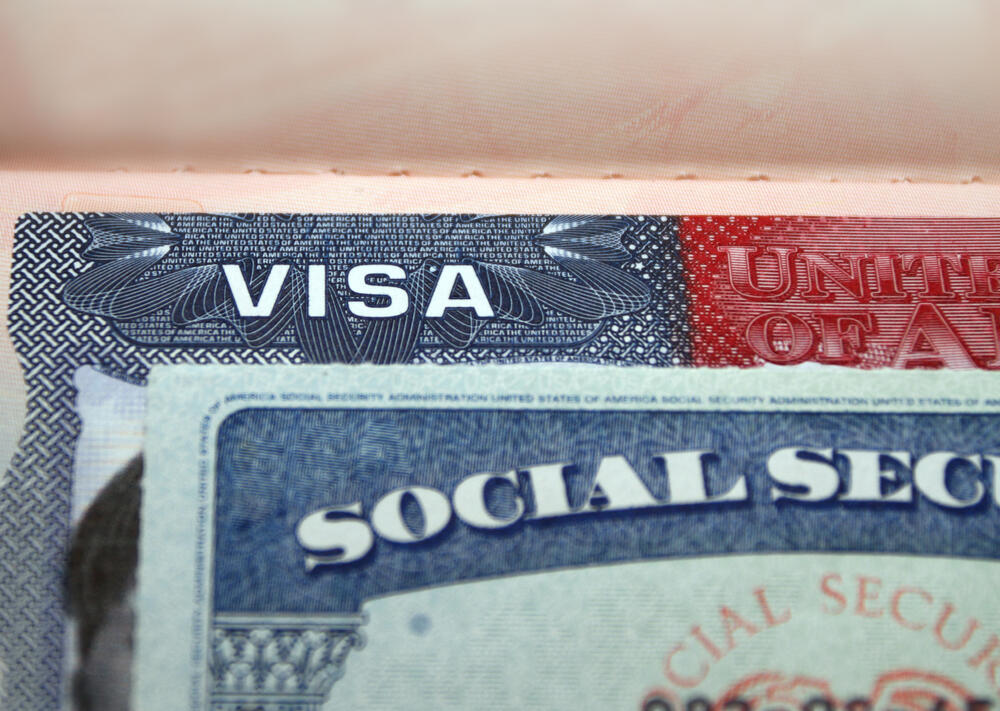
If you're considering living in Montenegro, it's important to understand the legalities of visas and residency. The Montenegrin government provides different types of visas, allowing for temporary or permanent residence, depending on your individual needs. To stay for a longer period, expats can apply for a temporary residence permit, which is often the best way to establish a legal presence in the country.
Different Types of Visas
Montenegro offers expats a range of visa options, depending on the intended length of stay. Here are some of the visa types available:
- Tourist Visa: Expats can stay in Montenegro as tourists for up to 90 days within a six-month period. This visa is suitable for those planning a short visit or exploring the country during the tourist season.
- Temporary Residence Permit: This permit allows expats to stay in Montenegro for an extended period, usually one year, with the possibility of renewal. It is a popular choice for digital nomads, remote workers, and foreign citizens who wish to live and work in Montenegro.
- Permanent Residence: Expats who have been living in Montenegro for at least five years with temporary residence permits may be eligible for permanent residence status. This status grants them the right to live and work in Montenegro without any limitations.
Steps to Gain Residency
Gaining residency in Montenegro may require expats to go through specific steps and provide certain documentation. Here are some of the key steps involved in obtaining a temporary residence permit, which is often the best way to establish legal residence in Montenegro:
- Health Insurance: Expats must obtain health insurance coverage that is valid in Montenegro.
- Proof of Sufficient Funds: The Montenegrin government requires expats to provide proof of financial stability, such as bank statements or employment contracts.
- Accommodation: Expats must have a registered address in Montenegro, whether it's renting an apartment or owning property.
- Application Submission: The temporary residence permit application, along with the required documents, must be submitted to the Montenegrin government authorities.
- Approval and Registration: Once the application is approved, expats must register their temporary residence permit with the local authorities.
It's important to note that the process may vary slightly depending on the expat's home country and personal circumstances. Consulting with the Montenegrin government or seeking legal advice can help ensure a smooth and successful application process.
Cost of Living in Kotor

Kotor offers expats an affordable cost of living, making it an attractive option for those looking to relocate. While Montenegro uses the euro as its currency, the cost of living is generally lower than in many Western European countries. Additionally, tax rates in Montenegro are relatively low compared to other European countries. These factors contribute to creating a good quality of life without the high expenses often associated with living in Europe.
General Living Expenses
Living in Kotor comes with affordable general living expenses. From rent prices to grocery costs, expats can enjoy a good quality of life without breaking the bank. Here are some of the general living expenses to consider:
- Rent: Rent prices in Kotor are generally lower compared to other popular European destinations, making it more affordable to find a place to call home.
- Grocery Costs: The cost of groceries in Kotor is reasonable, allowing expats to comfortably meet their everyday needs without spending excessively.
- Dining Out: Eating out in Kotor is also affordable, with a variety of options ranging from local eateries to international restaurants.
- Utilities: Basic utilities, such as electricity, water, and internet services, are reasonably priced, adding to the overall affordability of living in Kotor.
With its affordable cost of living, expats living in Kotor can enjoy a good quality of life while still managing their finances effectively. Compared to other towns in Montenegro, Kotor is one the most expensive ones.
Real Estate Pricing in Kotor
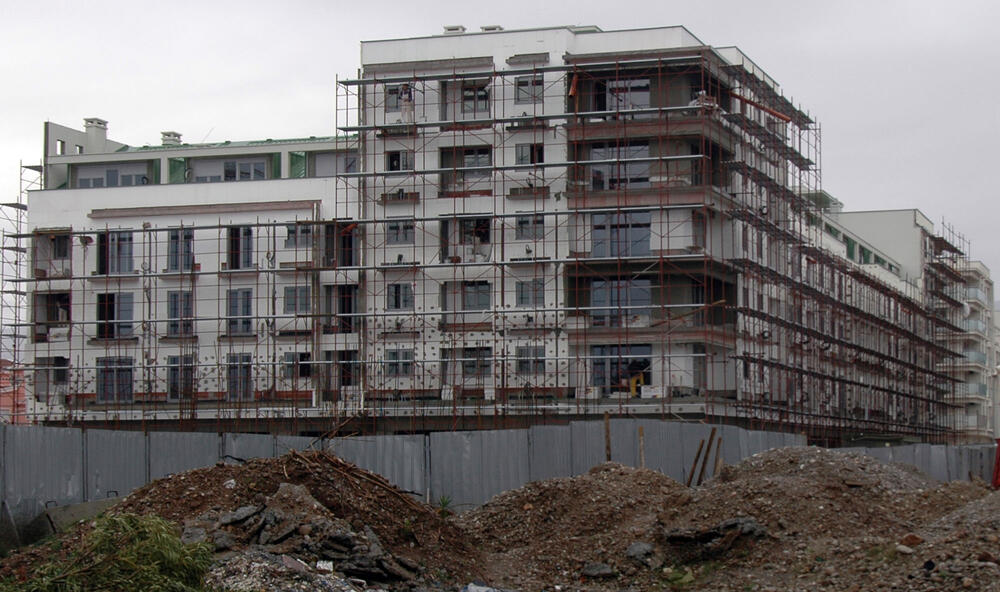
Kotor offers expats a good option for real estate investment, with property prices typically lower than in many other European countries. Whether you're looking to rent or buy, there are affordable options to suit various budgets. Here are some key points regarding real estate pricing in Kotor:
- Property Prices: Kotor's property prices are generally more affordable compared to similar coastal areas in other European countries, making it an attractive choice for investment.
- Square Meter: The cost per square meter of real estate in Kotor is often considerably lower than in neighboring countries, making it an advantageous market for property buyers.
- Luxury Options: In addition to affordable real estate, Kotor also offers luxury options for those looking for a more upscale lifestyle. From waterfront villas to modern apartments, there is a range of luxury properties available.
- Whether you're looking for a permanent residence, a vacation home, or a property with investment potential, Kotor's real estate market offers a variety of choices at competitive prices.
Healthcare Costs
Healthcare costs in Kotor are generally affordable, and expat residents have access to both public and private healthcare facilities. Here are some key points to consider:
- Health Insurance: Expats living in Kotor are advised to have health insurance coverage to ensure access to quality medical care. With the right health insurance plan, cost-effectiveness and peace of mind can be achieved.
- Public Healthcare: Montenegro has a public healthcare system, which offers affordable medical services to residents and expats. However, waiting times for non-emergency treatments can be longer.
- Private Healthcare: Private healthcare facilities in Kotor provide shorter waiting times, personalized care, and a wider range of medical services. Costs may be higher compared to public healthcare, but expat residents often find private healthcare beneficial for more immediate and specialized care.
Expats should carefully research the healthcare options available in Kotor, including insurance coverage, to determine the best choice for their individual needs.
Safety Measures in Kotor
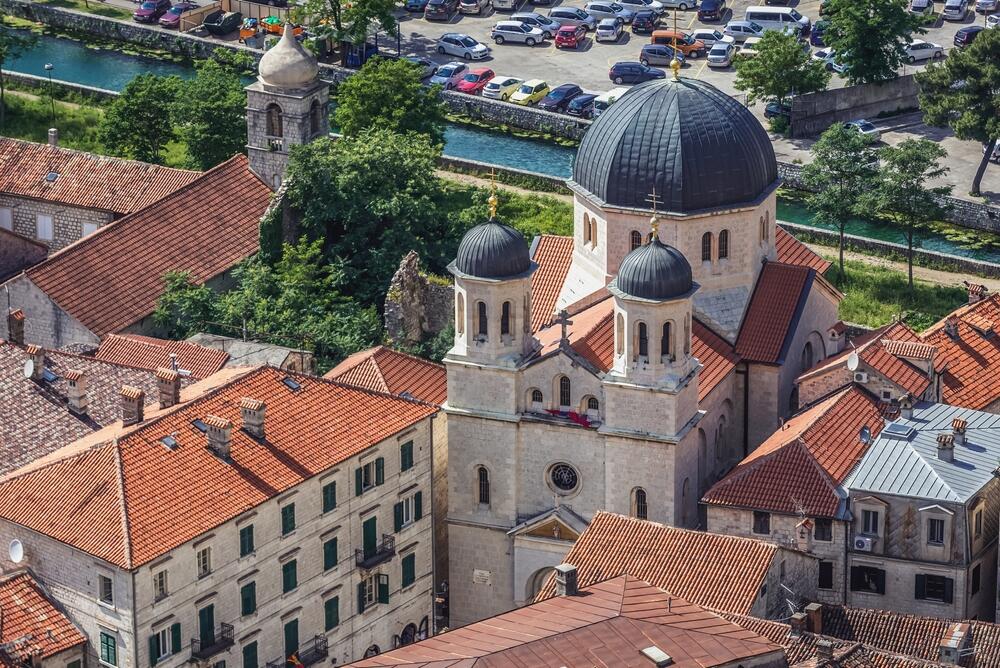
Kotor, like many other European countries, maintains a relatively low crime rate, making it a safe place for expats. The local law enforcement is responsive and proactive in maintaining public safety, and the community actively engages in crime prevention efforts. As with any tourist destination, it's important to take standard safety precautions, such as securing belongings and being aware of one's surroundings. Overall, expats in Kotor can feel secure and enjoy a peaceful living experience.
Crime Rate Details
Kotor boasts a relatively low crime rate, contributing to its reputation as a safe place to live for expats and tourists. Petty theft, such as pickpocketing, is the most common issue encountered, particularly during the tourist season when the town sees an influx of visitors. However, local authorities have been implementing measures to address tourist-related crimes and ensure the safety of residents and tourists alike. By taking simple precautions, such as keeping valuable items secure and being mindful of one's surroundings, expats can enjoy a safe living experience in Kotor.
Emergency Services in Kotor
Kotor offers efficient emergency services, ensuring the well-being of its residents and visitors. The emergency contact number, 112, can be used to access all emergency services, including police, fire, and medical assistance. Hospitals and medical facilities in Kotor are well-equipped to handle various health emergencies, and English-speaking emergency operators are available to facilitate communication during crisis situations. Visitors are encouraged to familiarize themselves with the locations of emergency service providers and their contact information to ensure easy access, should the need arise. Expats living in Kotor can feel confident knowing that reliable emergency services are readily available and easily accessible.
Process of Buying Real Estate
The process of buying real estate in Kotor follows established legal requirements, allowing expats to navigate the market with confidence. Foreign citizens looking to purchase property should familiarize themselves with the necessary legal procedures, including property registration. It's important to understand the tax rates and capital gains implications, ensuring a clear understanding of the financial aspects involved. Consulting legal experts can provide valuable guidance throughout the real estate buying process, ensuring expats stay well-informed and make sound decisions.

Legal Requirements
Foreign citizens looking to buy real estate in Kotor must adhere to certain legal requirements. It is important to consult the Montenegrin government and legal professionals for comprehensive and up-to-date information. Here are some general legal requirements to consider:
- Property Registration: Expats must ensure that the property they wish to purchase is registered and free of any legal encumbrances.
- Foreign Ownership: Foreign citizens are generally free to own property in Montenegro, subject to specific regulations, which may vary based on the expat's home country.
- Contractual Obligations: The terms of the property sale, including price, payment schedules, and other contractual obligations, should be clearly outlined in a legally binding agreement.
- Navigating the legal requirements of real estate transactions can be complex, but with the assistance of legal professionals familiar with Montenegrin real estate laws, the process can be simplified, ensuring expats meet all necessary legal obligations.
Pros and Cons of Buying Property in Kotor
Buying property in Kotor has its own set of advantages and considerations. Here are some pros and cons to keep in mind when considering real estate investment in Kotor:
Pros:
- Property prices in Kotor are generally more affordable compared to similar coastal areas in other European countries, offering good value for money.
- The option to rent out the property to tourists during the tourist season can generate a steady income stream for expat property owners.
- Kotor's real estate market presents diverse options, from historic buildings in the old town to modern apartments and luxury waterfront villas, catering to different preferences and budgets.
Cons:
- The fluctuating demand during the tourist season may impact rental income potential, with fewer tourists visiting outside of the peak season.
- Property management, including maintenance and finding reliable tenants, may pose challenges for expat property owners.
- Capital gains tax and other tax obligations should be considered when calculating the overall return on investment.
Prior to making any real estate purchase, it's important to carefully research and consider these pros and cons, as well as engage with expat communities and locally-based property professionals, to make informed decisions.
Healthcare Facilities in Kotor
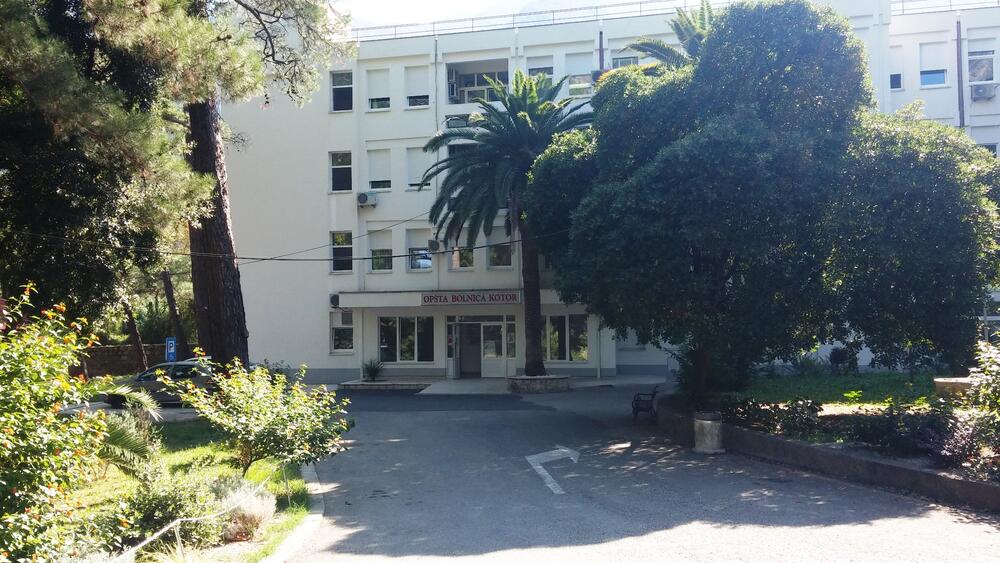
Kotor provides expats with access to a range of healthcare facilities, including both public and private options. The public healthcare system in Montenegro offers affordable medical services to residents and expats, although waiting times for non-emergency treatments can be longer. Private healthcare facilities, on the other hand, offer shorter waiting times, personalized care, and a wider range of medical services. Expats should carefully evaluate their healthcare needs and budget to determine the most suitable option for their individual circumstances.
Public vs Private Healthcare
Choosing between public and private healthcare in Kotor often depends on individual preferences, needs, and budgetary considerations. Here are some key points to consider when weighing public vs private healthcare options:
Public Healthcare:
- Accessible and affordable for residents and expats, offering a range of medical services, including primary care, specialist consultations, and basic emergency care.
- Waiting times for non-emergency treatments in public healthcare facilities can be longer compared to private facilities.
- Health insurance coverage can often be utilized for public healthcare services, providing expats with more affordable access to medical care.
- Expats living in Kotor should familiarize themselves with public healthcare facilities, services, and any associated administrative processes.
Private Healthcare:
- Private healthcare facilities in Kotor offer shorter waiting times, personalized care, and a broader range of medical services, including specialized treatments.
- Private healthcare costs may be higher compared to public healthcare, but expat residents often find the added convenience, quality of care, and reduced waiting times worthwhile.
- Health insurance coverage can also be used for private healthcare services, providing expats with access to more personalized and efficient care.
- Expats should research and consider private healthcare options, including cost, hospital reputations, and insurance coverage, to make an informed decision.
- Ultimately, the choice between public and private healthcare in Kotor depends on individual circumstances, preferences, and the specific healthcare needs of expats.
Health Insurance Options

Having health insurance coverage is essential for expats living in Kotor, ensuring access to quality medical care. Here are some important points to consider when exploring health insurance options:
- International Health Insurance: Expats living in Kotor can consider international health insurance plans, designed specifically for individuals living abroad, including expats. These plans typically provide comprehensive coverage, including outpatient care, hospitalization, specialist consultations, and emergency services.
- Tailored Plans: Research insurance providers offering health insurance plans tailored to expat needs, considering factors such as budget, coverage requirements, and additional benefits, such as maternity or dental coverage.
- Coverage Scope: Understand the scope of health insurance coverage, including which healthcare services, treatments, and medications are included, to ensure it meets your specific needs.
- Portability: Consider health insurance coverage that allows portability within Montenegro and other European Union countries, facilitating access to medical care if you travel within the region.
Navigating the Education System in Kotor
For expat families considering a move to Kotor, it is essential to understand and navigate the education system. Kotor offers a range of educational opportunities, including both public and international schools. Public schools provide education primarily in the Montenegrin language, offering expat children the opportunity to learn the local culture and language. International schools, on the other hand, provide English-language instruction and follow international curricula, providing expat children with a more familiar educational environment.
Public Schools versus International Schools
Expats in Kotor have the option of enrolling their children in either public or international schools, depending on personal preferences and educational goals. Here are some key points to consider when comparing public schools with international schools:
Public Schools:
- Public schools in Kotor primarily provide education in the Montenegrin language, offering expat children the opportunity to immerse themselves in the local culture and learn the language.
- Enrolling in public schools can be a good option for expat children, particularly those planning to stay in Kotor long-term or those who wish to integrate into the local community.
- Public schools, while generally more affordable, may have limited resources and international curriculum offerings compared to international schools.
- Older children may find it more challenging to adapt to public schools, especially if they do not have prior knowledge of the Montenegrin language.
International Schools:
- International schools in Kotor offer English-language instruction and follow international curricula, providing expat children with an education that is more globally-focused.
- The language of instruction, familiar curriculum, and diverse student body make international schools a popular choice for expat families, particularly those planning shorter-term stays or those seeking an educational environment similar to what their children are accustomed to.
- Private international schools often offer a wider range of extracurricular activities and support services, catering to the needs of expat families.
- International schools, however, often come with a higher price tag compared to public schools.
What are the Best Neighborhoods in Kotor for Expats?
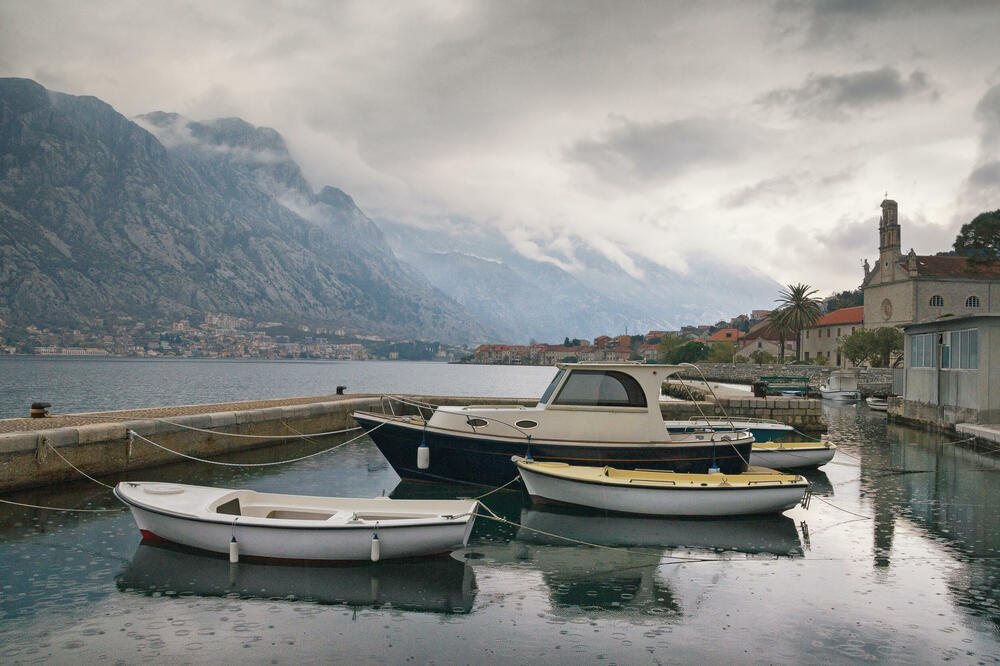
Kotor offers a variety of neighborhoods that are particularly attractive to expats looking for a place to call home. Here are some of the best neighborhoods in Kotor:
- Dobrota: This peaceful waterfront neighborhood is situated along the bay and offers stunning views and easy access to amenities.
- Prčanj: Known for its historic architecture, serene atmosphere, and proximity to good schools, Prcanj is popular among expat families.
- Muo: With its picturesque setting and affordable cost of living, Muo is a great option for expats seeking a tranquil lifestyle.
- Old Town Kotor: The UNESCO World Heritage site of Old Town Kotor is ideal for expats who appreciate a vibrant, cultural atmosphere and easy access to local amenities.
- Ljuta: This charming village near Kotor provides expats with a laid-back, rural lifestyle amidst beautiful natural surroundings.
Surrounding Towns:
- Tivat: Located nearby, Tivat offers expats a mix of luxury living, beautiful beaches, and cultural attractions. It is home to the luxury marina of Porto Montenegro.
These neighborhoods and surrounding towns showcase the diverse living options available in and around Kotor, each with its own unique charm, affordable cost of living, real estate opportunities, access to international schools, and proximity to the beautiful Bay of Kotor. Whether you prefer the historic charm of Old Town Kotor, the tranquil lifestyle of Muo, or the luxury living in Porto Montenegro, there is a neighborhood to suit every expat's preferences and needs.
Conclusion
In conclusion, Kotor offers a unique and charming experience for expats looking to settle in Montenegro. From its stunning natural beauty to its rich cultural heritage, Kotor has something to offer everyone. Whether you're interested in exploring the city's highlights, navigating the legal essentials of visas and residency, or understanding the cost of living and healthcare options, this guide has provided you with valuable insights. Remember to consider your specific needs and preferences when choosing a neighborhood and researching the education system. Overall, Kotor provides a safe and welcoming environment for expats to call home. So, pack your bags and embark on this exciting adventure in Kotor, Montenegro!
Bonus video:



